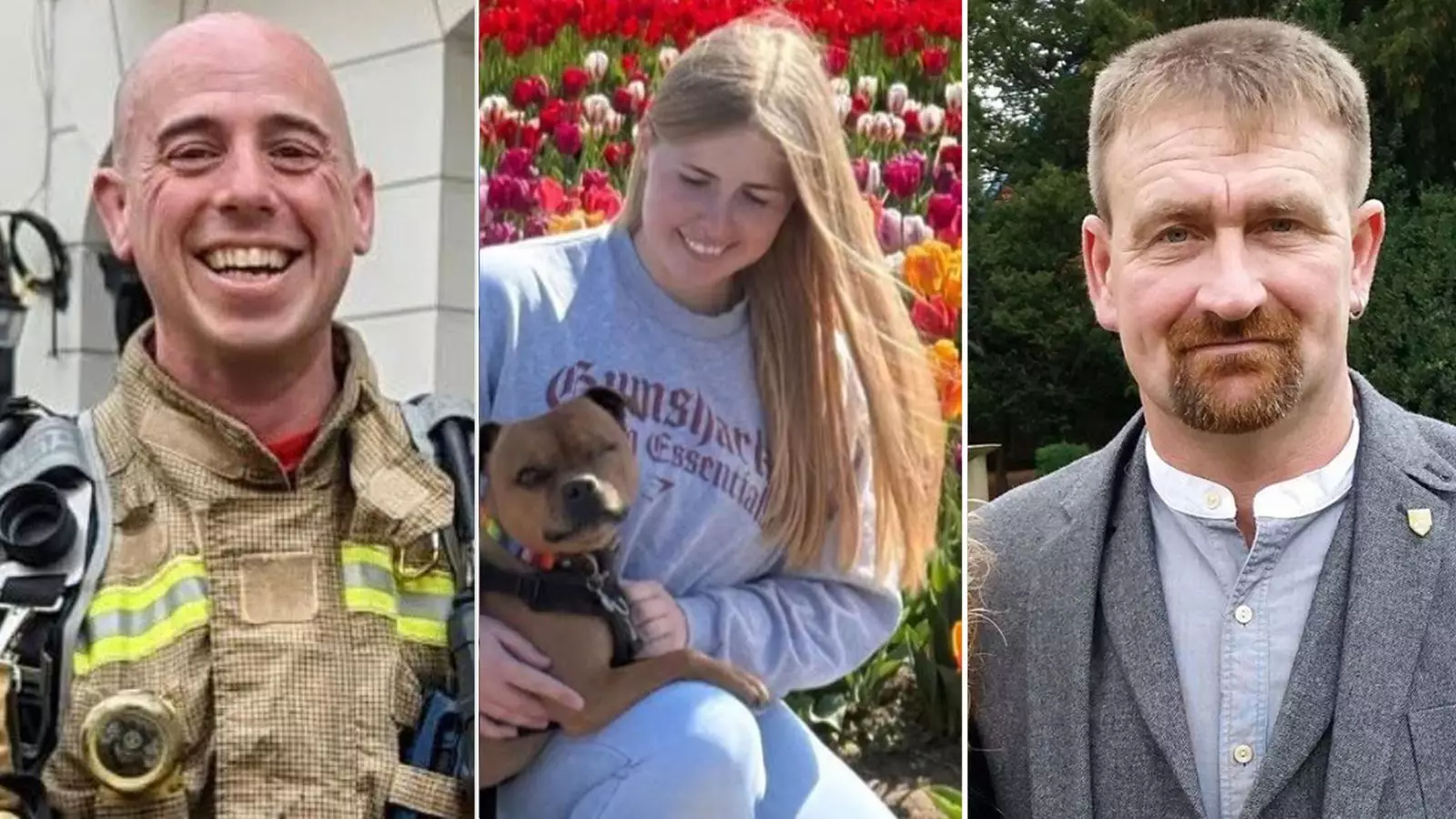The tragic loss of two brave firefighters, Jennie Logan and Martyn Sadler, alongside local business owner David Chester, has sent shockwaves through the community of Bicester, Oxfordshire. Their untimely deaths in a fierce blaze have transformed an ordinary day into a solemn reminder of the sacrifices made by those who serve in our emergency services. Flowers, heartfelt messages, and even children’s drawings have emerged at the site—gestures that underscore the innate human desire to show appreciation and love in times of immense sorrow. One touching tribute from a child, adorned with fire truck stickers, poignantly reads, “Thank you hero fighters,” encapsulating the spirit of gratitude that reverberates through the community.
In a world increasingly desensitized to tragedy, this disaster has drawn individuals together in an outpouring of collective grief. Bicester Rugby Union Football Club, where both firefighters were active members, expressed a heartfelt sense of loss through the words of chairman Chris Dabell. His remarks, “We are just one family,” illuminate how intertwined lives become in the face of adversity, demonstrating that these heroes were not just public servants; they were integral parts of the fabric of local life, united with their community in both service and celebration.
Isolation in Heroism
While the community rallies around the memories of the fallen, there lies a deeper, unsettling truth that must be acknowledged: the isolation that heroes often endure. Firefighters and first responders exemplify bravery, yet they also face the emotional toll of their demanding jobs. This incident is not merely an isolated tragedy; it underscores a national crisis encapsulated by mental health among emergency services. Rob MacDougall, the chief fire officer from Oxfordshire Fire and Rescue Service (OFRS), has called for respect and privacy for the families involved, yet one might question if that consideration is ever thorough enough. How are we supporting the emotional needs of our heroes who confront haunting scenes daily? This incident highlights the responsibility we bear as a society to foster psychological support and understanding.
In light of such tragedies, London Fire Commissioner Andy Roe issued a statement emphasizing the camaraderie and support needed among teams. It is imperative to translate these sentiments into actionable change, forging pathways to better mental health resources for firefighters and their families. The prevailing culture of toughness can often prevent heroes from asking for help. Their bravery and altruism must not lead to loneliness in grief.
Your Convenience vs. Heartfelt Tribute
The police have issued guidelines urging well-meaning citizens to refrain from leaving flowers at fire stations or at the site of the tragedy. Instead, they recommend placing tributes in Garth Park to ensure road safety. This poses an ethical dilemma: while the police aim to maintain order, does this limit the human act of mourning? How does one balance public safety with the visceral need to honor courage in the face of disaster? The location of a tribute can feel trivial in the grand scheme of respect, yet for many, it’s a critical outlet to express sorrow and solidarity.
Garth Park may very well become a hub for collective mourning, but a question lingering in the air remains: what if the urge to express grief finds itself stifled by bureaucratic red tape? Isn’t there a more empathetic approach to allowing individuals the freedom to grieve in whichever form they see fit? Emotions cannot adhere strictly to social norms or community guidelines; they operate in a separate realm, one where the heart seeks to deviate from convention in times of great sadness.
Fundraising as a Form of Solidarity
The establishment of a fundraising platform to support the families of those affected by the tragedy reveals another layer of communal resilience. It showcases how the need for aid contrasts sharply with the societal struggles many families face after losing a breadwinner. This response, however, ignites a conversation around how sustainable these measures are. Fundraisers are essential and appreciated, yet they should not overshadow systemic flaws in how we support public servants’ families in times of need. Such tragedies should not lead to ad-hoc fundraising campaigns as a response to loss. Society should cultivate robust systems that preemptively address the needs of those left behind, paving the way for a more secure future for families of heroes.
These tributes, mournful yet uplifting, serve to remind us that heroism is intrinsically linked to vulnerability. Perhaps in cherishing their memories, we might begin to recognize how fragile life is—both for those who put their lives on the line and for the loved ones they leave behind.

Leave a Reply